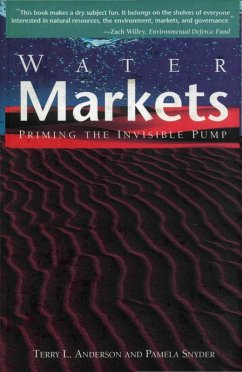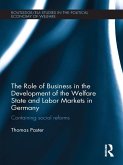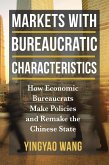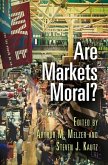Rain and snow may be falling today, but throughout the world people continually fear water shortages. Is there reason for such apprehension? In Water Markets: Priming the Invisible Pump, Terry L. Anderson and Pamela Snyder argue that the answer is no -- if we return control of water from government to markets. The authors document that humans are using only between 38 and 64 percent of the earth's readily available water. Nevertheless, in several poor countries of Africa and the Middle East, available water is often contaminated, producing millions of deaths each year. Anderson and Snyder argue that government control of water supplies has led to mismanagement and misallocation of water and that markets are the solution.
Dieser Download kann aus rechtlichen Gründen nur mit Rechnungsadresse in A, D ausgeliefert werden.









